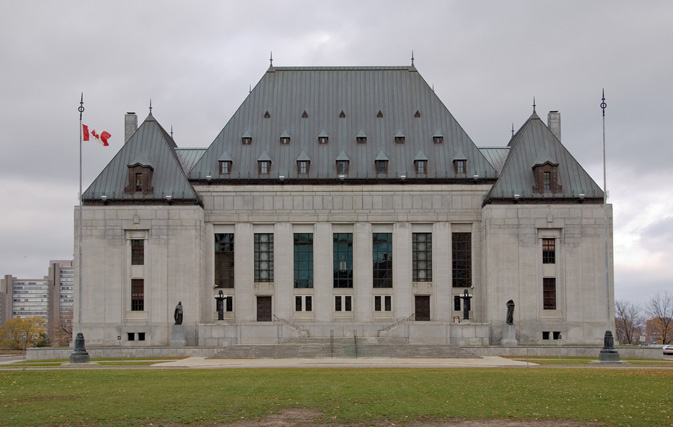OTTAWA – An Ottawa couple who complained after not being served in French on Air Canada flights are not entitled to financial compensation from the airline, the Supreme Court ruled Tuesday.
The Federal Court originally said Lynda and Michel Thibodeau should receive $12,000 but that ruling was overturned by the Federal Court of Appeal.
The case involved four complaints filed with the official languages commissioner in 2009 over English-only services.
Three were in connection with three different flights: Toronto-Atlanta, Atlanta-Toronto and Charlotte-Toronto, and the fourth dealt with an incident at Toronto’s Pearson International Airport.
Air Canada (TSX:AC.B) previously apologized to the couple.
In its five-to-two ruling, the high court noted that the Montreal Convention, a multilateral treaty adopted in 1999, provides for compensation only in cases of death, injury, delays or baggage-related incidents.
“The Montreal Convention’s uniform and exclusive scheme of damages liability for international air carriers does not permit an award of damages for breach of language rights during international carriage by air,” said the judgment.
Michel Thibodeau said he doesn’t view the Supreme Court ruling as a defeat, arguing that he and his spouse have advanced the cause of francophones in Canada.
“Could it have been better for us?” he said. “Obviously, I would have preferred (a victory) but should we see it as a defeat? I don’t think so.
“When we were in court, Air Canada would say, ‘Given the number of flights we have all across the country, there aren’t many complaints.’ Most people don’t complain. The more (well-founded) complaints there are, the easier it will be in the future.”
The NDP’s language critic was much more negative about the ruling.
“I am extremely disappointed,” Yvon Godin said in an interview. “I don’t find anything heartening about a decision that says you can break the law and get away with a mere apology.”
Representatives from the airline were in Ottawa for the ruling.
“Air Canada has always taken its linguistic responsibilities seriously and is committed to serving its clients in the official language of their choice,” said spokeswoman Louise-Helene Senecal.
Senecal said the playing field is not level for Air Canada because it is held to different standards than its competitors.
“If the government considers official languages to be that important, it should be the same for all (air) carriers in Canada.”
When he released his annual report three weeks ago, Canada’s official languages commissioner expressed concerns that certain institutions, including Air Canada, continue to violate the law year after year.
Graham Fraser singled out the airline, saying it shared the top spot in the number of complaints filed against it in 2013-2014 along with the Canada Border Services Agency.
Fraser expressed dismay that Air Canada did not seem to consider bilingualism a competitive advantage.
He also said he was mystified by its attitude toward bilingualism, saying it’s constantly reminded of ongoing investigations.
“Instead of looking at the question of offering services in the two official languages as a marketing asset, it appears to treat it as a burden,” Fraser said.

